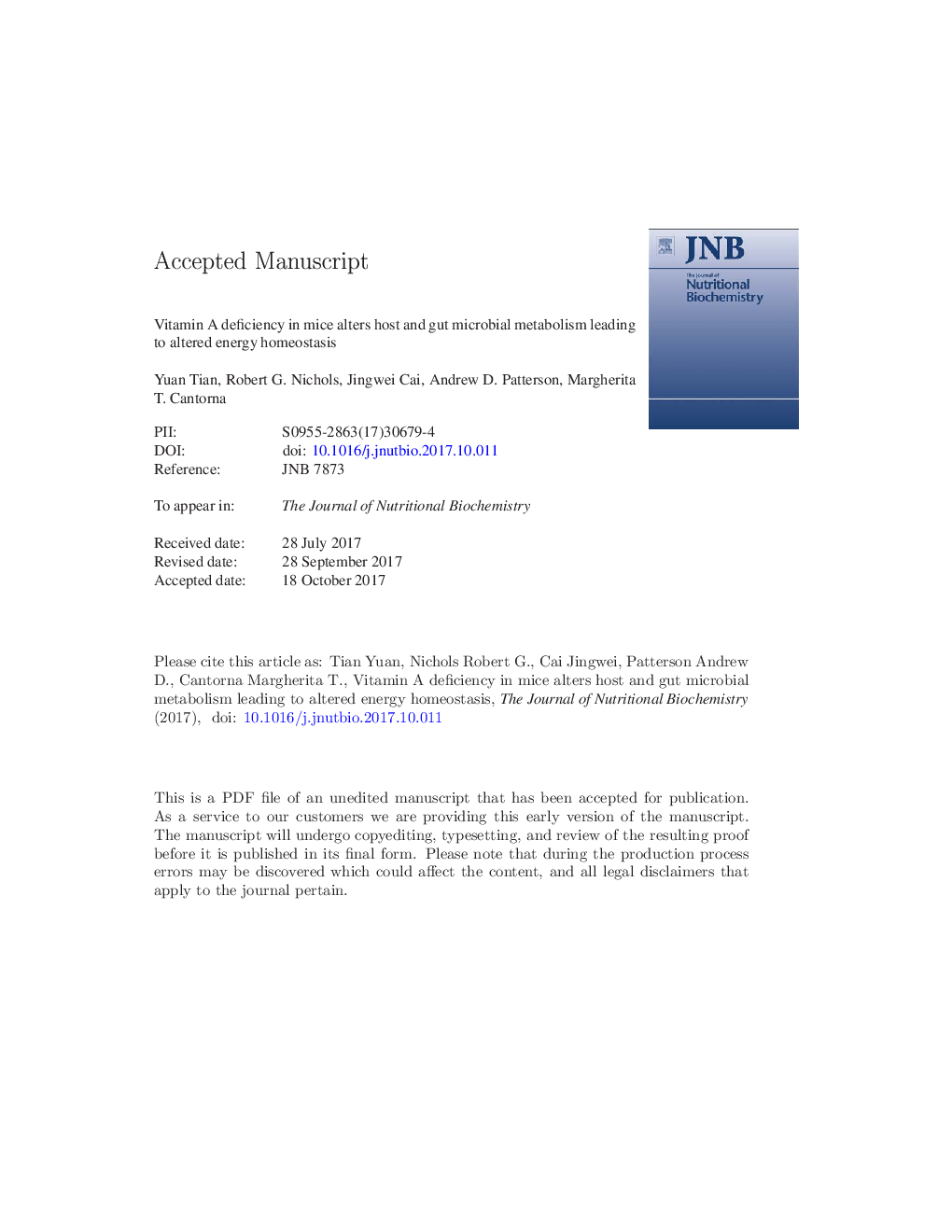| Article ID | Journal | Published Year | Pages | File Type |
|---|---|---|---|---|
| 8336405 | The Journal of Nutritional Biochemistry | 2018 | 31 Pages |
Abstract
Vitamin A deficiency (Aâ) is a worldwide public health problem. To better understand how vitamin A status influences gut microbiota and host metabolism, we systematically analyzed urine, cecum, serum and liver samples from vitamin A sufficient (A+) and deficient (Aâ) mice using 1H NMR-based metabolomics, quantitative (q)PCR and 16S rRNA gene sequencing coupled with multivariate data analysis. The microbiota in the cecum of Aâ mice showed compositional as well as functional shifts compared to the microbiota from A+ mice. Targeted 1H NMR analyses revealed significant changes in microbial metabolite concentrations including higher butyrate and hippurate and decreased acetate and 4-hydroxyphenylacetate in A+ relative to Aâ mice. Bacterial butyrate-producing genes including butyryl-CoA:acetate CoA-transferase and butyrate kinase were significantly higher in bacteria from A+ versus bacteria from Aâ mice. Aâ mice had disturbances in multiple metabolic pathways including alterations in energy (hyperglycemia, glycogenesis, TCA cycle and lipoprotein biosynthesis), amino acid and nucleic acid metabolism. Aâ mice had hyperglycemia, liver dysfunction, changes in bacterial metabolism and altered gut microbial communities. Moreover, integrative analyses indicated a strong correlation between gut microbiota and host energy metabolism pathways in the liver. Vitamin A regulates host and bacterial metabolism, and the result includes alterations in energy homeostasis.
Related Topics
Life Sciences
Biochemistry, Genetics and Molecular Biology
Biochemistry
Authors
Yuan Tian, Robert G. Nichols, Jingwei Cai, Andrew D. Patterson, Margherita T. Cantorna,
